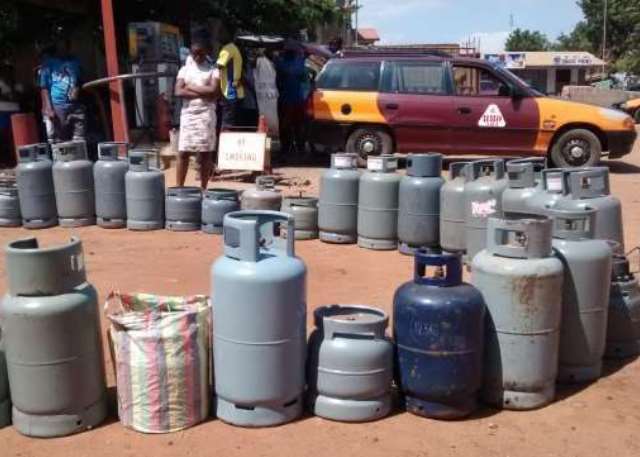The National Petroleum Authority (NPA) of Ghana has embarked on a robust nationwide campaign to promote the safe and efficient use of Liquefied Petroleum Gas (LPG), focusing on educational outreach in Sunyani. This initiative aims to educate the public about the advantages of LPG as a cleaner and more effective alternative to traditional fuels like firewood and charcoal, while simultaneously emphasizing crucial safety measures to prevent accidents. The campaign specifically targeted students, healthcare trainees, and market traders in Sunyani, recognizing their influence within their communities and the potential for broader impact. The chosen locations included the University of Energy and Natural Resources (UENR), Sunyani Technical University, the College of Nursing and Midwifery, and the bustling Sunyani Market, ensuring a diverse reach across various demographics.
A core message of the campaign revolves around the dangers of repainting or respraying corroded LPG cylinders, a common yet hazardous practice. Ing. Johnson Gbagbo Jnr, Supervisor for Gas at the NPA, highlighted the deceptive nature of this practice, explaining that while the external appearance of the cylinder might seem renewed, internal corrosion often continues undetected, posing a significant safety risk. He emphasized that the only safe course of action for cylinders after ten years of use is to have them requalified and pressure-tested by a certified cylinder manufacturing company, four of which currently operate in Ghana. This crucial safety measure forms a central component of the NPA’s Cylinder Recirculation Model (CRM), designed to ensure that only safe, certified, and properly maintained cylinders are in circulation, thereby eliminating the risks associated with cosmetically refurbished cylinders.
The safety awareness campaign extended beyond cylinder maintenance to encompass a broader range of safety protocols for LPG users. Ing. Gbagbo detailed essential safety procedures in case of suspected gas leaks, stressing the importance of avoiding electrical switches, ventilating the affected area by opening windows and doors, and evacuating if necessary. He further advised households to use wet blankets or fire extinguishers to control small gas-related fires, to store cylinders in well-ventilated areas away from heat sources, and to maintain an upright position during transportation. These simple yet effective measures can significantly mitigate the risk of accidents and ensure the safe handling of LPG.
The NPA campaign strategically positioned LPG not only as a safer fuel but also as a key component in Ghana’s energy transition. Mr. Joseph Kwame Gyan, Bono Regional Manager of the NPA, underscored the fuel’s efficiency and reduced emissions, highlighting its potential to transform both household energy consumption and industrial operations. He encouraged students, engineers, and healthcare professionals to advocate for wider LPG adoption, leveraging their positions of influence to drive a shift towards cleaner and more sustainable energy practices. This emphasis on LPG’s role in the energy transition underscores the NPA’s commitment to a more sustainable energy future for Ghana.
Furthermore, the campaign effectively connected the promotion of LPG to broader public health concerns. Mrs. Eunice Budu Nyarko, Head of Consumer Services at the NPA, emphasized the health risks associated with traditional fuels like charcoal and firewood, noting that smoke inhalation is a leading cause of respiratory illnesses, particularly among children. By framing the adoption of LPG as a public health initiative, the campaign conveyed a powerful message about the potential for improved health outcomes through cleaner cooking practices. This focus on the health benefits of LPG adds a compelling dimension to the campaign, resonating with individuals and families concerned about the well-being of their loved ones.
The multifaceted outreach strategy employed by the NPA demonstrates a comprehensive approach to promoting LPG adoption. By engaging with students, healthcare trainees, and market traders, the campaign effectively targets key influencers within the community, equipping them with the knowledge and skills to advocate for LPG use and safe handling practices. The emphasis on practical demonstrations and hard-hitting safety advice ensures that the message resonates with the audience and equips them to make informed decisions about their energy choices. The campaign’s integration of safety, health, and environmental considerations provides a compelling case for the adoption of LPG, contributing to a cleaner, healthier, and more sustainable future for Ghana.


